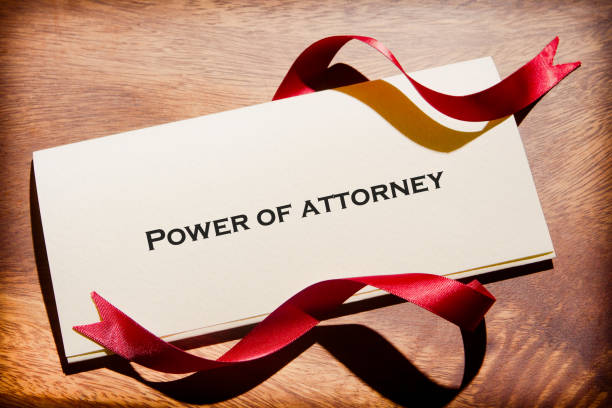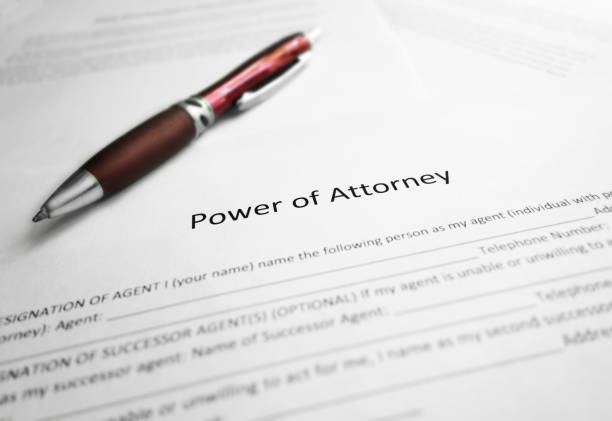A power of Attorney is a legal document that gives someone the power to act on your behalf in certain situations. This can be helpful if you need someone to handle your affairs for a short period, or if you are unable to do so yourself due to illness or injury. But a legal notice for cancellation can be issued when the other person shows misconduct or misuses such power. Keep reading to learn what is a Power of Attorney, its purpose, types, and how to draft and register one. Further, you’ll learn how to revoke the power of Attorney and other legalities involved.
What is a Power of Attorney?

A power of Attorney in common law legal systems is an authorization to act on behalf of someone else in a legal or business matter. The authorized person can make decisions, enter into a contract, and make a purchase/sale of property, etc., in your place. The person authorizing the other to act is the Principal. While the one authorized to act is the agent, attorney-in-fact, or Attorney. There are different types of power of Attorney, each with its unique purpose, such as:
- General Power of Attorney: This Power of Attorney is used when you want to give someone broad authority to handle your affairs. The agent can perform almost any action such as opening financial accounts and managing personal finances.
- Special Power of Attorney: This Power of Attorney is used when you want to give someone specific authority. The work assigned to the Attorney in fact is clearly mentioned, and the rights and powers are limited. The Attorney in fact is bound to act by terms mentioned in the Power of Attorney.
- Durable Power of Attorney: This Power of Attorney is used when you want to give someone authority that will continue even if you become incapacitated. The authority granted under a durable power of Attorney can be very broad and can include managing your finances, property, and medical care.
- Springing Power of Attorney: This Power of Attorney is used when you want to give someone authority that will only go into effect under specific conditions, such as if you become incapacitated.
How to Draft a Power of Attorney

Power of Attorney can be written or oral; however, it is recommended to have a written one that clearly states its purpose. You should consult a lawyer who can draft your Power of Attorney suitable to your requirements. A Power of Attorney should include details like the Name, the Address of the Principal and Attorney, date and place where it is being executed. Apart from that, it should:
- Describe the type of powers being delegated, whether the Power of Attorney is general, durable, or specific.
- List the powers that are being conferred to the Attorney like custody, healthcare, management of property, etc.
- Include the liabilities of the Principal, Attorney, or a third party, if any.
- Have the signatures of respective parties along with notary.
The attorney-in-fact can be family, relatives, friends, or someone you trust. Important considerations before choosing an attorney-in-fact are:
- Your Attorney-in-fact should be a person of proper age and mature enough to understand the transactions involved.
- Your attorney-in-fact should be reachable and live close to you.
- Mere trust and goodwill are not the sole criteria. They should have sound knowledge of financial affairs and be experienced enough to perform legal transactions if and when required.
How to Revoke a Power of Attorney?

If the Attorney does anything contradictory to the clauses and terms of the Power of Attorney, in that case, the Principal can revoke the power of Attorney after giving prior legal notice for cancellation of the power of Attorney.
Also, a power of Attorney can be revoked due to completion of work or business for which there is a power of Attorney.
The power of Attorney’s issuance ends when the Principal completes the business. Then keeping the power of Attorney becomes unnecessary, and the Principal can revoke it.
You can revoke a Power of Attorney by signing a Deed of Revocation. Also, the Principal must guarantee the Attorney at the time of execution of their duty; however, if the Attorney in fact doesn’t act lawfully or in good faith or does such work attracting criminal punishment, the Principal is not liable to secure the Attorney.
Choosing who to be your Power of Attorney can be an overwhelming task. At Saanichton Law Group, Our talented team will help you to feel confident that you are making the right decisions.




